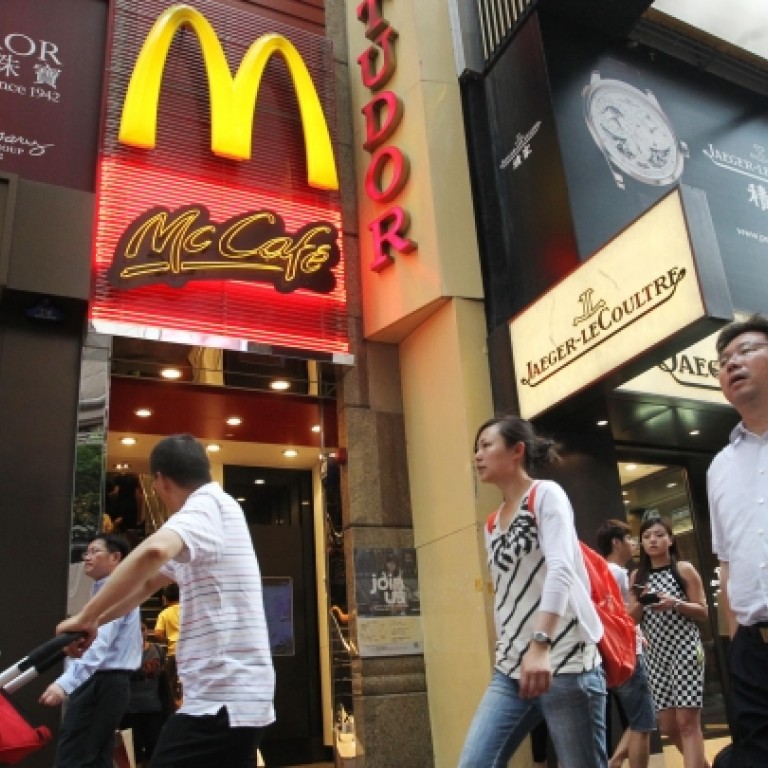
McDonald's loses prime slot in Causeway Bay to Sa Sa make-up chain
McDonald's has been driven out of the world's most expensive retailing street as cosmetics chain Sa Sa proves willing to pay sharply higher rent
The Big Mac has been priced out of Hong Kong's most exclusive shopping strip to make way for yet another retailer eyeing the wallets of cashed-up mainlanders.
Despite McDonald's being the world's largest chain of hamburger restaurants, it still could not afford the rents in Causeway Bay's Russell Street, and has been forced to move out.
Operated by McDonald's Corp, the restaurant opened on the first floor of 8 Russell Street in 2006.
Donald Cheung Ping-keung, executive director of the landlord, Emperor International, said the 6,000 square feet shop had been leased to Sa Sa International Holdings for HK$1.58 million a month. Sa Sa will move in in October.
The rent is more than three times higher than the existing monthly rent of HK$500,000 paid by McDonald's, which signed a lease two years ago.
Joe Lin, senior director of retail services at CBRE, said: "Retailers such as luxury watch and jewellery stores who are targeting mainland shoppers are eager to move into the street, as it has become the most famous shopping street to mainland tourists. [Luxury retailers] are willing and able to pay rent of HK$1.6 million for a shop in the street. Other retailers are able to afford a monthly rent of only up to HK$900,000, so it is inevitable that other non-luxury goods tenants have to move out."
Lin said retail rents in Russell Street have jumped sevenfold since the Individual Visit Scheme, allowing mainlanders to visit the city, was launched in 2003. By last year, the average rent of street-level shops on the street surpassed Fifth Avenue in New York, making it the most expensive shopping street in the world, according to Cushman & Wakefield.
Fifteen of the 28 stores on the street are sellers of luxury watches and jewellery. Including retailers of cosmetics, a money exchange, high-end fashion and luxury accessories, there are 24 stores targeting mainland shoppers. Only four shops do not rely on mainland tourists.
Lai Wing-to, a veteran property investor who owned a shop in Russell Street, said: "The retailers open these shops as a way of advertising their brands, and they are also able to generate profit. In the last few years, it has been common to see mainlanders buying dozens of watches."
Lin said the non-luxury retailers who are not reliant on mainlanders may generate only moderate profit and may have difficulty affording expensive rents.
McDonald's is an example. A Big Mac meal cost HK$21. Even if McDonald's paid no other operating expenses, it would have to sell one Big Mac meal every 35 seconds every 24 hours to pay a monthly rent of HK$1.58 million.
Beijing's anti-corruption campaign and the economic slowdown on the mainland have meant that local sales of luxury goods have decreased significantly since early this year. But retail rents are expected to stay firm in the short term.
Cheung said there were hundred of international brands in the world and many of them were interested in expanding in Hong Kong. "But the growth in the rent will slow," he said. "We won't see a 20 per cent growth a year as we saw over the last few years. It will be flat, as rents have increased a lot over the last four years."
Lin said: "Even if the overall retail rents turn flat or fall, the rents in Russell Street would be the last to suffer."

